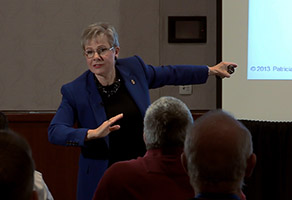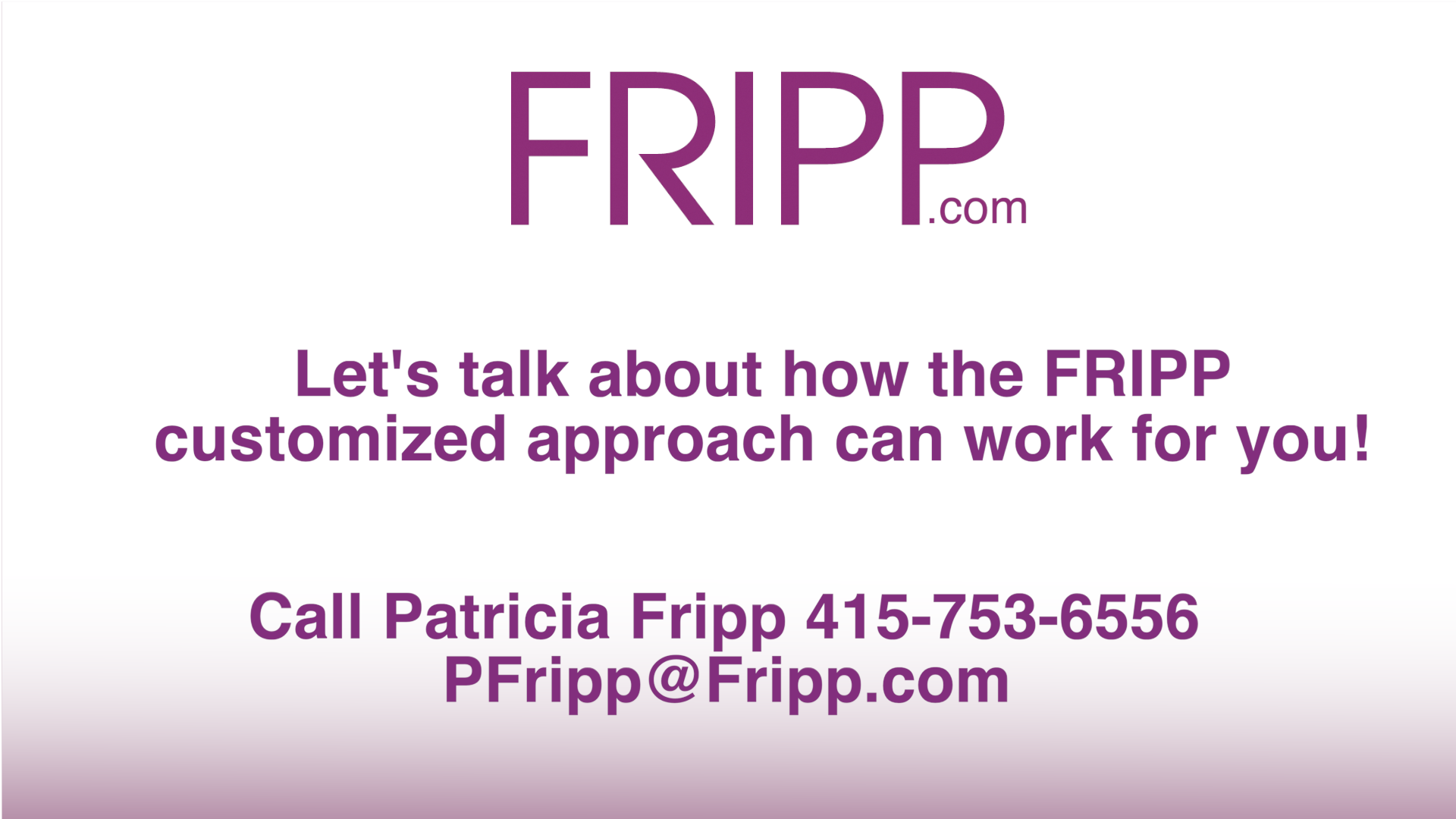How do you feel about facing a room full of senior management, or even just a few around a boardroom table, all staring at you?
I recently shared some strategies for presenting to senior management in a post called “7 Fripp Do’s – How to Present to Senior Management Without Being Terrified” Here are a few questions you should ask yourself as you prepare your presentation.
Questions to Get Started – Ask Yourself…
1. What is the topic or subject you are reporting on? Be clear with yourself so you can be clear with your audience.
2. Why is your topic important enough to be on the busy agenda of senior-level managers?
3. What questions will your audience be asking? Can you answer them early in your presentation?
Here’s an Example
Present your conclusion:
What is your report’s central theme, objective, or big idea? How can you introduce it in one sentence? Anticipate and answer questions your audience would ask.
Suppose that you’ve been in charge of a high-level, cross-functional team to study whether there is a need for diversity training in your company. You must start by saying: “Thank you for the opportunity to head up the cross-functional team to study if Diversity Training will be a good investment for our company.
Our committee has spent three months studying diversity training programs and whether one could benefit our company’s goals. We conclude that diversity training would be an excellent investment. In the long term, we would save money from recruiting, increase employee retention, and improve company morale. The positive PR could increase our market share with our minority customers.”
Present your recommendations:
“We recommend that the company initiate a pilot program, starting next quarter, using the ABC Training Company at an investment of $…. The ABC Company has successfully implemented this program with one of our subsidiaries and many Fortune 100 companies. All 27 members of the cross-functional team agreed with this conclusion. Our team comprised a real cross-section of the company—two Vice Presidents, the Facilities Manager, eighteen associates, some with PhDs, and six entry-level personnel. The group includes both long-term employees and some new hires. And all 27 team members are willing to be part of the evaluation committee to study the results before making a decision about a complete company rollout.”

Describe what’s in it for them:
Address the needs of senior management, as well as the company. Please answer the questions they will be asking and show them how your recommendation can make them look good. For example, senior management is usually charged with increasing sales and reducing costs. What if this program means saving money by lowering employee turnover yet has a relatively modest cost?
Anticipate and answer questions your audience would ask:
“Why is this program a good idea when we cut unnecessary spending? One of our company’s key initiatives is recruiting and retaining 20% more of the best available talent than we did last fiscal year. If this training had been in place last year, morale would have been higher, and our 23% minority associates would have rated their employee satisfaction survey higher. As you remember, for the last three years, our minority associates have traditionally rated their satisfaction 3% lower than that of the other population. This training could have helped increase satisfaction and retention. We would lower the cost of recruiting and training new associates.
How does this investment compare to other investments we have already made? As a comparison, the initial cost of the pilot for all three offices is 2% of what we spend on maintenance agreements for our copier machines in our headquarters building.”
Conclusion:
“On behalf of the 27-member committee, thank you for this exciting opportunity. The friendships we have formed and our increased company knowledge is invaluable to us all. The entire team is committed to this project. We are asking for your okay to start the pilot program.”
When you are short, clear, and concise, you will make a strong impression and increase your chances of acceptance.
![]() If you want to become a great speaker easily, conveniently, and quickly, FrippVT can help. Take a complimentary test drive of this interactive, web-based platform and enjoy three free chapters on Stories, Openings, and Sales: http://frippvt.com
If you want to become a great speaker easily, conveniently, and quickly, FrippVT can help. Take a complimentary test drive of this interactive, web-based platform and enjoy three free chapters on Stories, Openings, and Sales: http://frippvt.com
Executive Speech Coach and Hall of Fame Keynote Speaker Patricia Fripp works with individuals and companies who realize that powerful, persuasive presentation skills give them a competitive edge.
“Patricia Fripp is a genius speech coach. Even for seasoned professional speakers.” Tracy Hooper, President, The Confidence Project
“As a seasoned speaker coached by Patricia Fripp has helped me deliver my game-changing message with more power and eloquence. My client testimonials and feedback prove it.” Ron Karr, CSP, Past President, National Speakers Association
“Your coaching and FrippVT helped us land one of our biggest sales ever.” Mike Stryczek, President & CEO, AB&R
“As a speech coach, Patricia Fripp is a miracle worker.” Larraine Segil, Chairman and CEO, Exceptional Women Awardees Foundation.
“I would have paid $3000 for a year of FrippVT.” Mitzi Perdue, Professional Speaker and Author.
Need help for you or your team on improving important conversations and presentations? The Fripp Customized Approach will work for you. Contact Fripp today!


Thanks for a marvelous advice!
Thank you. Patricia